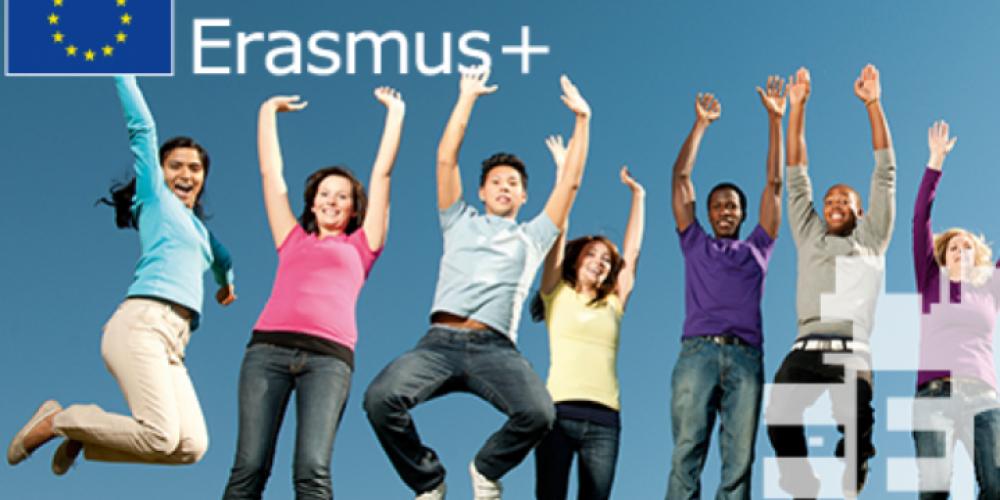
UNISTAR
The UNISTAR project started off this month and will end on 30 September 2022. It’s a project that falls under the European pillar of social rights and was submitted (and approved) to the Erasmus+ ‘Cooperation for innovation and the exchange of good practices – KA203 ‘strategic partnerships for higher education’. It aims to provide a framework to train and guide academic and administrative staff in higher education institutions (HEIs) to deal with refugee students. These members of staff will often come across situations they have never been in before and require guidance. Refugees have very specific psycho-social concerns and needs, and university staff need information and training adapted to the refugee students’ requirements in terms of intercultural training, tools for teaching in multicultural contexts, raising awareness on possible psychological issues, etc.
In practical terms the project aims to develop an online toolkit (upscaling the one developed by the UNHCR Regional Representation for Western Europe) and setting up a 3-day training model which HR officers and refugee experts can use for staff at their HEI. The VUB’s International Relations office is the coordinator of this project. The partner network is composed of European organisations and higher education institutions: Vilnius University (Lithuania), Alice Salomon University of Applied Sciences (Germany), Universidad Alcala (Spain), and the University of Applied Sciences in Utrecht (the Netherlands). The online tool will be further developed with help from experts at the UNHCR. Associate partners in the project are the Université Libre de Bruxelles (ULB, Belgium), Université Paris Seine (France) and Université Orléans (France). The project’s kick-off meeting took place at the VUB International Relations office on 22 October 2019.
SIEM
The SIEM-project – social inclusion and engagement in mobility – was approved by the Erasmus+KA3 ‘social inclusion project’ at the end of summer and will kick-off in December in Paris, hosted by ESN France. The coordinator of the project will be the Erasmus Social Network (ESN) International.
The SIEM-project aims to increase the opportunities and chances in life for young people from disadvantaged backgrounds by increasing their participation in the Erasmus+ programme. This is an existing and unsolved problem in the majority of higher education institutions in the EU.
The project wants to increase knowledge about barriers to mobility for students from disadvantaged backgrounds; increase participation of students from underrepresented groups in the Erasmus+ programme; increase social engagement of international students to engage with young people from underrepresented backgrounds; increase cultural awareness and recognition of soft skills gained through the Erasmus+ programme for young people with fewer opportunities. Although the project looks at all those within the ‘underrepresented groups’, it will put specific focus on those students with a different ethnicity or migration background; those from socio-economically less advantageous backgrounds; those from rural areas; those who are first generation university students.
Besides ESN International and VUB, other partners included in the project are: Universities UK International (UUKI), the European University Foundation (EUF), the Youth and European Social Reform (YES Forum), the University of Vigo (Spain), Latvia University (LU), Masaryk University (Czech Republic), ESN Spain, and ESN France. Associated partners include the European Disability Forum, the Support Center for Inclusive Higher Education (SIHO), and the Irish Universities Association (IUA). The strong partnership across eight countries has substantial experience in running EU-funded projects and research on student mobility and internationalisation.
VUB coordinator in three Erasmus+ Capacity-building projects
In addition to the good news received by the VUB International Relations office regarding its UNISTAR and SIEM projects, the VUB was also chosen as a coordinator in three capacity-building projects within the Erasmus+ programme. This is quite something, as it is the maximum number of projects one institution can coordinate. The European Commission’s Education, Audio-visual and Culture Executive Agency (EACEA) made the selection at the end of summer. The VUB International Relations office provided (advisory, revisional and administrative) support to the three VUB professors and their teams who submitted the proposals. The chosen projects are:
- A university network for disaster risk reduction and management in the Indian Ocean Rim (UN4DRR): the project will run from January 2020 until January 2023. The VUB will coordinate. Other partners in the project are the Universitat Politècnica de València (Spain), the University of Nicosia (Cyprus), the University of Zagreb (Croatia), The Maldives National University (Maldives), IPB – Bogor Agricultural University (Indonesia), Universitas Syiah Kuala (Indonesia), University of Peradeniya (Sri Lanka) and University of Colombo (Sri Lanka). The VUB lead on the project is Prof dr Jonathan Chan.
- An e-master’s in water resources engineering programme (eMWRE): VUB will coordinate with partners IHE Delft, Eummena (the technology provider), the University of Jordan (Jordan), Mutah University (Jordan), Islamic University Gaza (Palestine) and Al Quds University (Palestine). The VUB lead will be Prof dr Ann Van Griensven. The project will start in January 2020 and will take three years.
- ‘Moving towards innovative education for research-based and sustainable management of marine and freshwater ecosystems’ (CORRIENTE XXI): VUB will coordinate with partners Escuela Politécnica del Litoral (Ecuador), Universidad Central del Ecuador (Ecuador), Universidad Peruana Cayetano Heredia (Peru), Universidad Nacional Mayor de San Marcos (Peru), and Université de Bretagne Occidentale (UBO). The VUB lead on the project is Prof dr Nico Koedam. The project will run from November 2019 till November 2022.